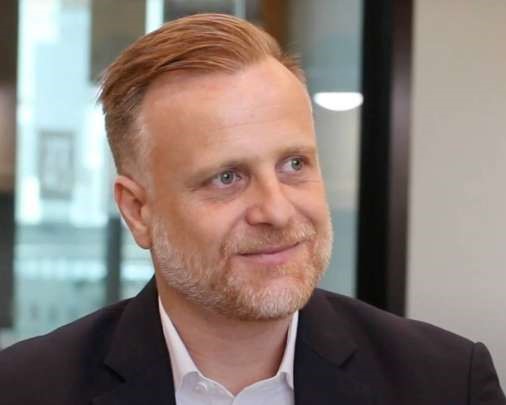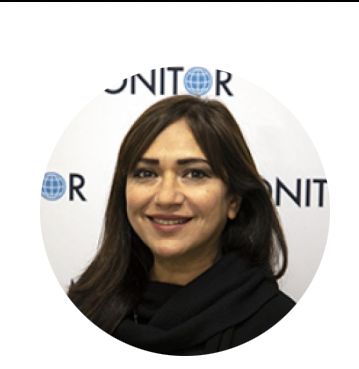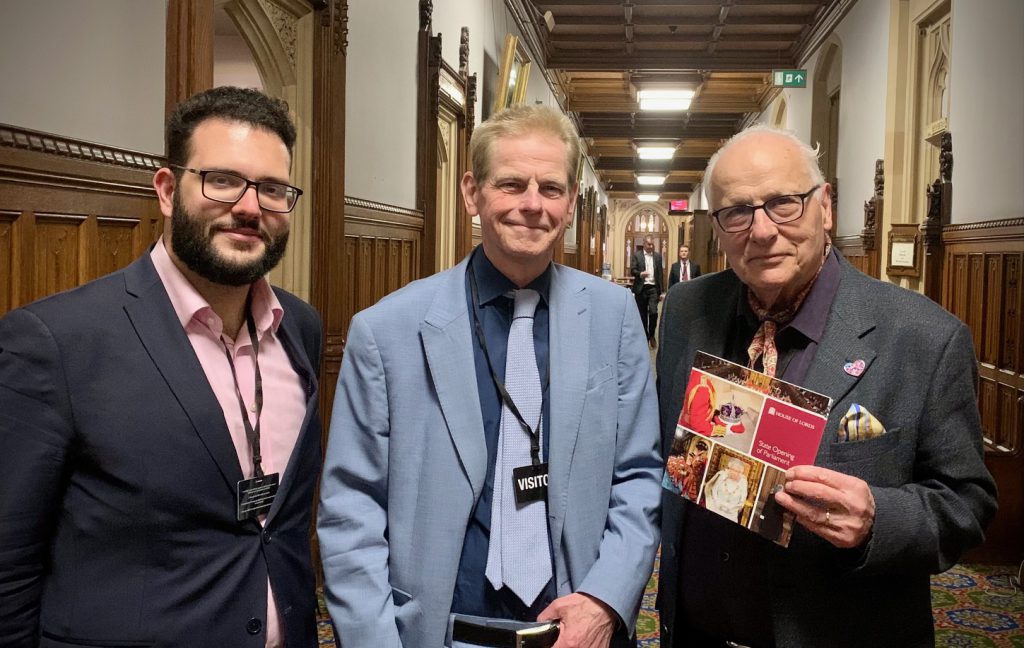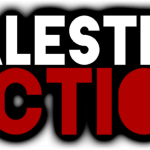Media freedom, “the cornerstone of democracy”, is being undermined and manipulated “by a number of different actors who use a variety of increasingly sophisticated methods” that need to be exposed says Maria Ordzhonikidze, director of the Justice for Journalists Foundation.
She was speaking at a panel discussion – Towards Press Freedom: New Hope or False Dawn? – at the House of Lords on May 2 to mark the 30th anniversary of World Press Freedom Day, supported by the Association of European
Journalists and the Commonwealth Journalists Association and organised by the Westminster United Nations Association and the University of Sheffield’s Centre for Freedom of the Media.
Other panellists included:
Karuna Nundy, member of the High Level Panel of Legal Experts on Media Freedom and advocate at Inda’s Supreme Court (via video)
Amberin Zaman, UK-based Turkish journalist, Al-Monitor senior correspondent; Coalition of Women Journalists press freedom Hero
Kingsley Abbott, former International Commission of Jurists leading expert on International Criminal Justice, Director of the Institute of Commonwealth Studies
Moderator – William Horsley, International Director, Centre for Freedom of the Media and AEJ UK Chairman
Host – Lord Black of Brentwood, Deputy Chairman of the Telegraph Media Group
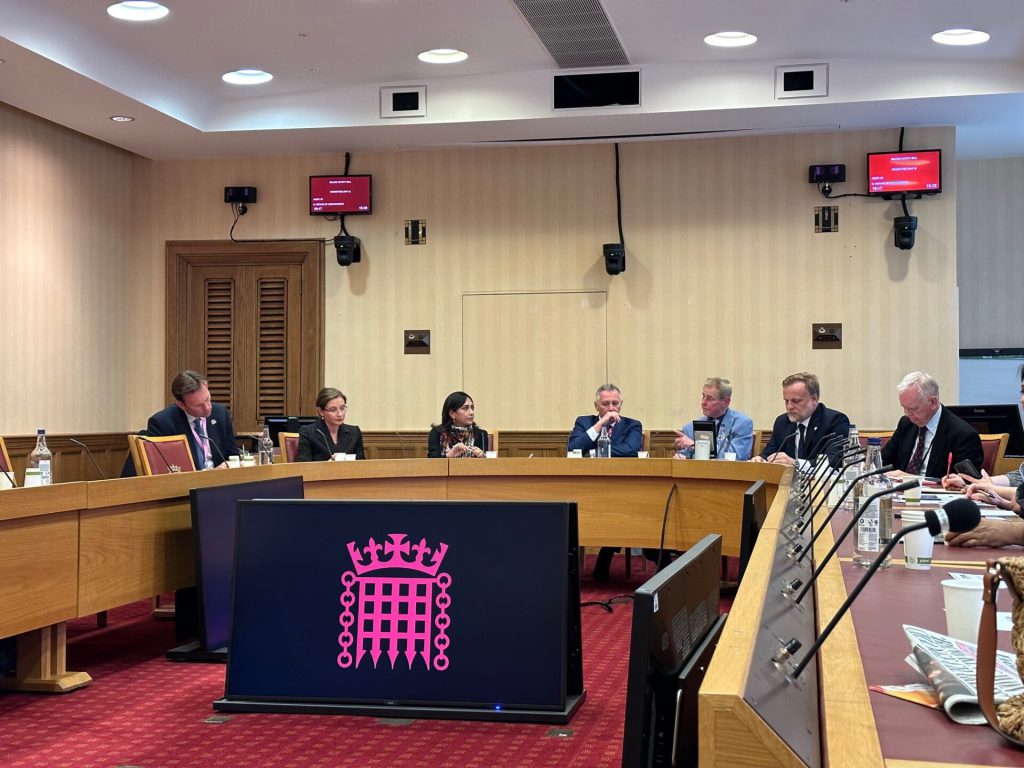
The full speech by Ms. Ordzhonikidze:
Ladies and gentlemen, it is a pleasure to be here today and speak before you on the eve of World Press Freedom Day.
It is frequently stated that Media Freedom is the cornerstone of democracy because without broad access to independent and diverse views, the public can’t make informed choices, and thus democracy can’t exist. Today, our access to independent information is manipulated by a number of different actors who use a variety of increasingly sophisticated methods. Some of them are easier to confront, some are much harder. What is vitally important in our line of free media defence is to know the enemy, by which I mean we need to have a very clear understanding of who the usual perpetrators are and what is in their toolbox.
I would like to give you today a snapshot of these tools and how the perpetrators use them against the free media, and then finish by suggesting a few ways to protect independent voices from them.
First, I will say a couple of words about the organisation I represent today – Justice for Journalists Foundation.
Our Foundation was established in response to the brutal murder of three journalists in the Central African Republic. Orkhan Dzhemal, Alexander Rastorguev and Kirill Radchenko investigated the activities of notorious Kremlin-connected mercenaries from the Wagner group. This private Russian mercenary group is funded by Evgeny Prigozhin, a close associate of Russian President Putin. The crimes of these mercenaries are often documented in places where Russia leads its undeclared wars: Sudan, Mali, Syria, Libya, Georgia, Crimea, and now the whole of Ukraine.
We funded an independent investigation into the brutal murder of these three journalists in Central Africa. And while researching the situation around independent media globally, we realised that it is not a one-off and that the attacks on media workers are indeed a global problem. Only in 2022 year, according to CPJ’s figures, 67 media workers lost their lives while in the line of duty. According to the data from our Ukrainian partners, in the 14 months of war, 56 media workers perished, including 13 who were killed while doing their job.
Killing, kidnapping, incapacitating a media worker or throwing them in prison without any access to help are the ultimate acts of censorship that are blatant and horrible, but thankfully, not too frequent in countries not torn by war or run by mad dictators or criminal gangs.
The ways independent media is silenced today in more civilised parts of the world are more sophisticated. I would like to point out three methods specifically:
- Disinformation that includes propaganda and the production of fakes and lies.
Undeniably, this phenomenon is a huge problem in today’s overly connected society, where any fake can reach and influence a multi-million audience in a matter of seconds. The main and most effective perpetrators here are of course totalitarian governments, dishonest politicians, and unethical corporate actors.
We are all aware of what consistent disinformation efforts can do when taken to an extreme. Kremlin TV viewers are overwhelmingly supporting efforts to destroy the Ukrainian nation. Kremlin’s blatant and omnipresent propaganda is the derivative of the country’s doctrine of information warfare. Here is how this doctrine was formulated by one of the top FSB officials: an integral whole of four synergetic parts: “sabotaging enemy’s infrastructure, SIGINT and OSINT, hacking of enemy’s information resources, and battle for public opinion via spreading disinformation to influence opinions, intentions and orientation of population and decision-makers.”[1] Hackers, troll factories, cyber-warriors, corrupt propagandists, agents of influence, and “useful idiots” – are all soldiers in this war.
Social media platforms, with their algorithms programmed to show the content that is easy to monetise, over the one that is truthful but not as exciting, are the battle fields of this and other information wars.
The more traffic – the more hits a post generates, the more money internet giants like Facebook, Twitter, YouTube and others make. It does not matter whether it is a fact or fake that gets reposted – what matters is the money and the platforms’ lawyers’ skills.
2. SLAPPs, or strategic litigation against public participation, are another mighty tool to silence voices unveiling corruption and other crimes by rich and powerful actors.
Such vexatious legal threats and abusive lawsuits against media workers aim not to achieve justice but strive to intimidate, professionally discredit and often financially ruin their targets. Law is weaponised to suppress independent investigative journalism, to tarnish the reputations of individual journalists and whole media outlets, to hamper their work in all possible ways. The idea is to hide the truth by threatening journalists and outlets with costly lawsuits and entangling them in draining legal procedures.
Rich and powerful all around the globe are becoming more and more sophisticated in curtailing media freedom by abusing the legal systems. Unfortunately, London continues to be the most attractive jurisdiction for SLAPPers such as Roman Abramovich and Arron Banks, who have gone after journalists Catherine Belton and Carole Cadwalladr respectively. There are still many ongoing cases against UK and international journalists who are effectively bullied into silence.
3. The third way to shut down independent voices is to limit public access to alternative sources of information.
This is done by the abuse of national security rhetoric as well as laws that allow to block foreign and independent media such as ‘foreign agent law’ or ‘undesirable organisations’ and also various technical solutions. In Russia, foreign journalists are routinely thrown into jail (like UK citizen Vladimir Kara-Murza or US citizen Evan Gershkovich). Or, Belarus KGB not only hijacked a plane with the founder of a popular independent Telegram news channel, but also routinely arrests those who are subscribed to this and other independent channel on extremism and terrorism charges. Or we can look at Great Firewall and Great Cannon that block all sources the Chinese communist party doesn’t like. There are many possibilities to deprive the public of the right to know. And they are used to extreme in those and many other totalitarian states.
So what can we do here, in the UK, to help democracy globally, to ensure the public has access to independent information and is free to make choices?
In relation to Information warfare and countering disinformation and propaganda techniques employed by malicious state and corporate actors:
- Know your enemy; understand this is not about the pluralism of opinions but about using a mighty, specifically designed information weaponry.
- Unveil the malicious techniques, inform and educate the public about the dangers and how to become immune.
- Treat propagandists the same way as war criminals, prosecute trolls, doxxers and other malicious online actors.
In relation to media platforms that monetise the conflicts and thus deepen the public discord – negotiate, explain, demand explanations and regulate.
In relation to SLAPPs. The UK Anti-SLAPP coalition advocates for three main steps to counter those:
- Early filtering and dismissal mechanisms enabling the courts to throw out clearly abusive cases.
- Addressing the prohibitively high costs of the litigation AND the pre-litigation process – this is the main reason the journalists stop working on their stories: they simply can’t afford to engage with the UK legal system.
- Deter the potential claimants from bringing on meritless cases – SLAPP claimants must show a likelihood of prevailing at trial.
In relation to tireless efforts by evil states to deprive their population of access to the truth and to prosecute all independent media workers and outlets along with their audience:
- Awareness building – monitoring of the attacks and publicising them as we do with our CoE Safety of Journalists Platform partners. This among other monitoring mechanisms helps journalists prepare to work in environments that are not secure.
- Invest in research and devise mechanisms to counter attacks on the independent media – here, I would like to commend the UK National Committee for Safety of Journalists, which brings together representatives from government, journalism, policing, prosecution services and civil society to collaborate to make sure that journalists in the UK are able to operate free from threats and violence. It has the tools and capacity.
- Support independent voices and freedom of speech internationally by providing legal and visa assistance to help with relocation and settlement abroad. There are civil society organisations that do it, but they need political will and support that help turn the wheels of this mechanism in the right direction.
([1] Markomenko Vladimir on information war, as quoted in Soldatov, Andrey and Borogan, Irina, Novoye dvoryanstvo, Moscow, United Press, 2011 p.294)
Presentation by Maria Ordzhonikidze at the Justice for Journalists Foundation website
Report on panel discussion – United Nations Association Westminster
Report on panel discussion – PDF
Event flyer
World Press Freedom Day – UNESCO
Justice for Journalists Foundation launched
Russian journalists killed in Central African Republic – July 2018
New evidence shows murdered journalists tracked by police – CNN January 2019
Human Rights Watch calls for further investigation into murders – August 2020
